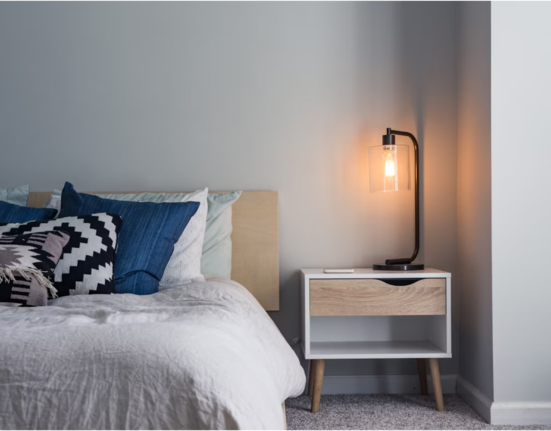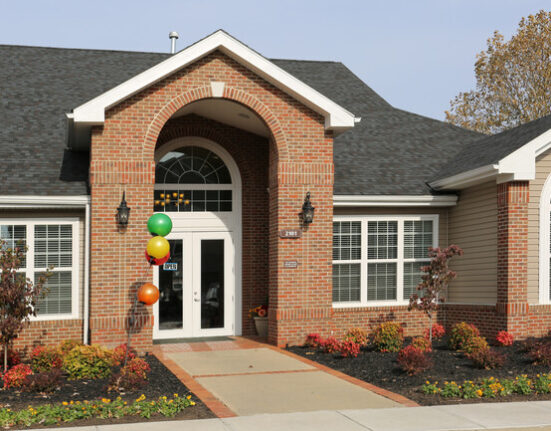When Emily first moved out of her family home to explore new opportunities in a different city, she faced a tough decision—what to do with her house? Selling it seemed the most logical option at first. Still, after some research, Emily realized that renting her house could provide a steady stream of passive income while allowing her to retain ownership of the property. Fast forward five years, and Emily’s house has been a valuable asset, consistently generating rental income and appreciation. For many homeowners like Emily, renting out a property can be an excellent way to turn their home into an income-generating investment. In this guide, we’ll explore the process of renting your house, the benefits, challenges, and essential tips to maximize your returns.
Why Rent Your House?
Renting my house has several benefits, especially if you’re still waiting to sell but want to make money from the property. According to a National Association of Realtors report, around 36% of U.S. households are renters. This demand for rental properties creates a lucrative opportunity for homeowners to tap into a growing market.
Additionally, the rise in home prices over the past decade has made homeownership out of reach for many. In 2023, the median home price in the U.S. reached over $400,000, pushing more people to rent. As a homeowner, renting your house allows you to hold onto a valuable asset while taking advantage of this solid rental demand.
The Financial Benefits of Renting Your House
One of the primary reasons homeowners like Emily choose to rent out their property is the consistent rental income. On average, landlords in the U.S. earn between $1,100 and $1,500 per month in rental income, depending on the location and size of the property. This steady cash flow can help offset mortgage payments, property taxes, and maintenance costs while providing a passive income stream.
Moreover, owning a rental property has the potential for long-term appreciation. Home values have appreciated by an average of 4-5% annually over the past 50 years. By holding onto the property, you can benefit from this appreciation while still collecting rental income.
Costs to Consider When Renting Your House
While renting out your house can be financially rewarding, it’s essential to factor in the costs of being a landlord. Maintenance, repairs, property management fees, and insurance are some ongoing expenses of renting out a home.
- Maintenance and Repairs: As a landlord, you are responsible for keeping the property in good condition. This includes routine maintenance, such as lawn care, plumbing, electrical work, and emergency repairs. On average, homeowners spend about 1-2% of the property’s value annually on maintenance. A $300,000 home could range from $3,000 to $6,000 per year.
- Property Management Fees: If you’re unable or unwilling to manage the property yourself, hiring a property management company can make the process easier. Property managers typically charge 8-12% of the monthly rent for their services. They handle everything from finding tenants and collecting rent to dealing with maintenance requests and evictions.
- Insurance and Taxes: Rental properties require special insurance coverage, known as landlord insurance, which is more expensive than a standard homeowner’s policy. According to the Insurance Information Institute, landlord insurance policies cost around 25% more than traditional home insurance.
Preparing Your Home for Rent
Before you start listing your home for rent, there are several steps you should take to ensure it’s ready for tenants. First, you’ll need to make any necessary repairs or updates to make the property attractive to renters. Simple improvements, like fresh paint, updated appliances, or landscaping, can significantly attract high-quality tenants.
It’s also essential to set a competitive rental rate. Research the local rental market to determine how much similar properties are renting for in your area. Websites like Zillow, Rentometer, or Apartments.com can help you assess rental rates for properties with comparable size, location, and amenities. By pricing your rental competitively, you’ll attract more tenants and reduce the time the property stays vacant.
Finding the Right Tenants
The next step is finding reliable tenants once your house is ready to rent. This is one of the most important aspects of being a successful landlord, as a bad tenant can lead to unpaid rent, property damage, or legal issues.
You must create a thorough tenant screening process to attract high-quality tenants. This includes conducting background checks, verifying income and employment, and checking references from previous landlords. A good tenant screening process will help you avoid potential issues down the road and ensure your property is in good hands.
According to a study by the Rental Protection Agency, landlords who conduct proper tenant screening experience fewer evictions and collect over 98% of rent on time. Investing time in screening tenants can save you money and headaches in the long run.
Managing Your Rental Property
Once you’ve secured tenants, managing the property becomes your primary responsibility. If you’re managing the property yourself, be prepared for regular communication with tenants regarding maintenance requests, rent collection, and any issues that may arise. Establishing a good relationship with your tenants can help ensure they take care of the property and pay rent on time.
Alternatively, hiring a property management company is an option if you need more time or expertise to manage the property. As mentioned earlier, property management companies handle day-to-day operations, but they come at a cost. For many first-time landlords, the peace of mind provided by professional management is worth the expense.
Legal Considerations for Landlords
Being a landlord comes with legal responsibilities, and you must familiarize yourself with the landlord-tenant laws in your area. These laws vary by state and cover security deposits, tenant rights, and eviction procedures. Ignorance of these laws can lead to costly legal issues.
For instance, most states require landlords to return a tenant’s security deposit within a specific timeframe after they move out, usually within 30 days. Failure to do so could result in penalties or legal action. Also, landlords must provide tenants with a habitable living environment, including working utilities, proper sanitation, and adequate security measures.
Understanding your legal obligations as a landlord is crucial to avoiding potential lawsuits or fines. To ensure compliance with all applicable laws, consult with a real estate attorney or property management expert.
Tax Benefits of Renting Your House
One advantage of renting out your home is the tax benefits. Landlords can deduct various expenses related to the rental property, including mortgage interest, property taxes, insurance premiums, maintenance costs, and depreciation.
Depreciation is a valuable tax benefit, allowing landlords to deduct the wear and tear of the property over time. The IRS allows you to depreciate the home’s value over 27.5 years, which can result in significant savings on your annual tax bill.
In addition, rental income is considered passive income, which means it’s not subject to self-employment taxes. However, you must report rental income on your tax return and pay income tax on the profits generated from the rental property.
Conclusion: Is Renting Your House Worth It?
For homeowners like Emily, renting a house can be an intelligent financial decision, providing a steady income stream and long-term appreciation. While there are costs and responsibilities involved in becoming a landlord, the potential rewards make it a worthwhile investment for many. By carefully preparing your home, finding reliable tenants, and managing the property effectively, you can turn your house into a profitable rental that continues to generate returns for years. Whether you’re looking to supplement your income or build long-term wealth, renting your home offers an excellent opportunity to maximize the value of your property.














